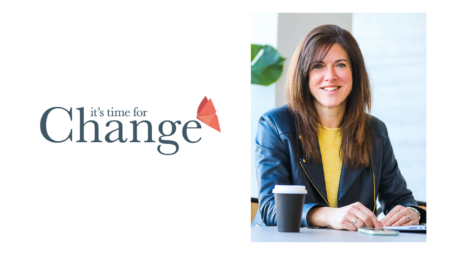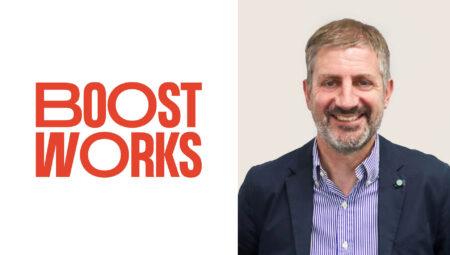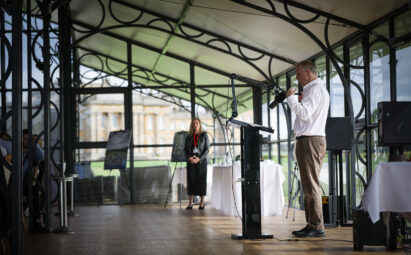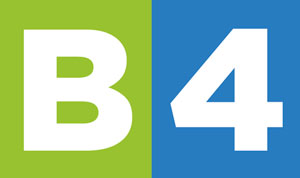
Only 50% of Brits say their workplace takes bullying seriously
Bullying in the workplace is an unfortunate prevalence and with many of us now working part-time in the office- how empowered are Brits when it comes to seeking help from HR?
- Over 3 in 10 (31%) British adults wouldn’t hesitate to contact the police for help
- Men are more likely than women to know what to do in traumatic situations
- Only 45% of those aged 16-24 say they know where to go to make a sexual harassment complaint
- Nearly 1 in 5 members of the British public (19%) reveal they don’t understand the law
For justice to be served, each of us need to feel empowered to take action when we’re at our most vulnerable. And for that to happen, we need to feel that the institutions designed to support and help us are on our side. However, recent reports about the public perception of the police suggest that this might not be the case. Specialist lawyers Bolt Burdon Kemp asked the British public how empowered they feel when it comes to seeking justice.
The British public are generally empowered to seek justice
Bolt Burdon Kemp’s survey of 2,000 British adults found that most people know what to do if something traumatic happened to them. They were asked about situations involving medical negligence, workplace discrimination, sexual harassment and abuse, and issues with the police.
- 31% said they’d be comfortable approaching the police for the same.
- 62% said they’d know what to do if a doctor was inappropriate with them.
- 43% said they’d know what to do if a doctor misdiagnosed them.
- 50% said their workplace takes bullying, discrimination, or harassment complaints seriously.
- 59% said it’s too expensive to access legal support, while 52% said there are too many barriers to getting legal support.
- 41% said if they needed help, support or to make a complaint, they’d be comfortable approaching a law firm.
Men are more confident and comfortable making a complaint than women
The survey brought to light an imbalance between how empowered men and women are in problematic situations. Men are more likely than women to say they’d know what to do if something traumatic happened to them. In contrast, more women than men say they’d hesitate to talk to the police or a lawyer if something happened to them. For 19% of women (and 14% of men), this is in case they weren’t believed. For 15% of women (and 11% of men), this is in case they get blamed for what happened.
- 56% of men said they know where to go to make a sexual harassment complaint. This drops to 52% for women.
- More women (55%) than men (48%) believe there are too many barriers to getting legal support.
The youngest generation are the least prepared for dealing with difficult situations
While younger people have more trust in the police than older generations (with 35% of 16-24-year-olds saying they’re comfortable going to the police compared to 31% of those aged 35+), the younger generation are also less likely to know what to do in most of the situations addressed in the survey.
- 45% of those aged 16-24 say they know where to go to make a sexual harassment complaint (compared to 55% of those aged 35+).
- In contrast, 34% of 16-24-year-olds say they’d go to the police for help, in comparison to 30% of those aged 35+.
- The youngest generation (16-24 years) are also more likely to be put off going to the police or a lawyer about sexual abuse, with 23% hesitating in case they’re not believed (versus 15% of those aged 35+).
- Compared to other age groups, a larger proportion of those aged 25-34 (15%) said they wouldn’t report sexual abuse in case it negatively affects their relationships or career.
These findings suggest more needs to be done in order to educate the younger generation on their legal rights. It’s also important that practical and actionable information is provided so they know how to seek justice if they are wronged.
People in Northern Ireland are the least likely to know what to do in traumatic situations
From a regional perspective, people in Northern Ireland tend not to agree with the overall consensus that they know what to do if they face traumatic situations. For example, only 28% of people in Northern Ireland say they know what to do if their doctor failed to diagnose them (in contrast to an average of 43% overall). What’s more, fewer people in Northern Ireland (48% versus 55% overall) than any other region would feel comfortable making a complaint about discrimination at work.
- Despite generally not knowing how to respond to a traumatic situation, 61% of people in Northern Ireland do say they’d be comfortable going to a law firm if they needed help, support or to make a complaint (compared to 42% overall).
- Only 47% of people in the East of England and 46% in the North West of England say they know where to go to make a sexual harassment complaint.
- People in Yorkshire and the Humber are the least likely to say they’d feel comfortable going to a law firm for help, support or to make a complaint (36% versus 42% overall).
People on lower incomes are less likely to feel empowered in traumatic situations
Compared to respondents on other income ranges, those who earn £15,000 or less per year are the least likely to say they’d know what to do if something happened to them. The same group would also hesitate to contact the police or a law firm about sexual abuse for a multitude of reasons.
- Only 40% of those earning £15,000 or less (compared to 46% earning £55,000 and over) said they’d know what to do if a doctor failed to correctly diagnose their illness.
- Only 50% of those earning £15,000 or less (compared to 59% earning £55,000 and over) would feel comfortable making a complaint about discrimination at work.
- 43% of those earning £15,000 or less (versus 57% earning £55,000 and over) said their workplace takes bullying, harassment or discrimination complaints seriously.
- 21% of those earning £15,000 or less (versus 17% overall) said they’d hesitate to contact the police about sexual abuse as they might not be believed.
All this suggests research needs to be carried out to better understand why those with a lower income feel less empowered to gain access to justice
Where to get help if you’ve faced a traumatic situation
Below is a short guide to getting help if you’re ever injured, face unfair treatment, harassment, discrimination or abuse, or are medically misdiagnosed:
- In the case of medical misdiagnosis, you can make a formal complaint if you’d like to see the healthcare professional go through disciplinary procedures. The NHS complaints procedure can be used for NHS-specific services, or you can complain directly to the private hospital. Another option is to use the Independent Sector Complaints Adjudication Service (ISCAS).
- Approach organisations who can provide advice about abuse, such as the National Domestic Abuse Helpline, Survivors UK, Victim Support, the National Association for People Abused in Childhood (NAPAC), and law firms that deal with cases of abuse.
- You can also bring a medical negligence claim for independent experts to determine what went wrong in your care and who was to blame, or an accident claim to determine how and by whom your accident or injury was caused, before securing compensation.
- If your employer is responsible for sexual harassment, bullying or discrimination, you could contact your workplace union, or organisations such as the National Bullying Helpline or the Advisory, Conciliation and Arbitration Service.
- If you’re faced with a traumatic event or you suffer something unjust, you can usually contact a lawyer for initial help without being charged for their time. Organisations such as Citizens Advice can also help provide free legal advice.
Methodology
The research was conducted by Censuswide, with 2,023 respondents aged 16+ in the England, Wales, Northern Ireland and Scotland between 18 May 2021 and 21 May 2021. The survey was conducted from a nationally representative sample of British adults. Quotas were applied to nationally representative proportions for age, gender and region. Censuswide abide by and employ members of the Market Research Society which is based on the ESOMAR principles. Any reference to ‘the British public’ within this piece refers to the full set of respondents surveyed. Data from the report can be found here: https://docs.google.com/spreadsheets/d/11HNGG1e68qnxqx_QPCaAe0lrGYTPh0yHTIs0d4ThoQs/edit?usp=sharing
More in Workplace Wellbeing

Lost in Translation? Employees says CEOs Don’t Speak Their Language of Appreciation
Boostworks study reveals 65% employee dissatisfaction rate with
current benefit programmes

Psychological Safety: What does this mean, what should this look like...
At our last B4 People Ecosystem, Lisa LLoyd of It’s Time for Change shared the following report:

Boostworks Appoints Former Vodafone Board Director as Executive Chairman
Mark Bond, previously Head of Customer Operations at Vodafone leads Boostworks Board
From this author

Ingram aiming to ‘turn the tables’ in quest to reclaim BTCC...
Tom Ingram leaves no doubt about his objective for the forthcoming British Touring Car Championship campaign – he wants to reclaim the biggest prize in UK motorsport, which he first lifted 18 months ago. And he is confident he can do just that.

HENLEY FESTIVAL 2024 UNVEILS PIONEERING VISUAL ARTS SHOWCASE
10 – 14 July 2024 | henley-festival.co.uk | #HenleyFestival | @henleyfestival
Henley Festival Presented by Westcoast – the UK’s only boutique black-tie festival – is delighted to reveal this year’s dazzling visual arts programme, featuring one of Britain’s best-selling figurative painters Mark Demsteader, the Doug Moran National Portrait Prize and Archibald People’s Choice Award-winning artist Esther Erlich, and sculptor Holly Bendall, who creates striking bronzes including a Greenpeace-supported permanent public installation that can be experienced in Porthleven.

Blenheim’s CEO opens up on solar
The first B4 Platinum Quarterly held in the stunning Clementines on the South Lawn at Blenheim Palace encapsulated all that is good about a business community coming together to network. One of B4’s most loyal supporters, Blenheim Palace, played host to over 100 business leaders from across Oxfordshire providing fantastic hospitality and enabling brilliant conversations.


